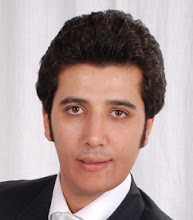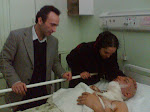 As some religious leaders in Iran have called for “the utmost punishment” for detained Bahais using state media resources, the confrontation with the followers of this belief has intensified and yesterday such calls went deep into the country. Bahai leaders in Vilashahr in the province of Isfahan were reported to have been arrested.
As some religious leaders in Iran have called for “the utmost punishment” for detained Bahais using state media resources, the confrontation with the followers of this belief has intensified and yesterday such calls went deep into the country. Bahai leaders in Vilashahr in the province of Isfahan were reported to have been arrested. The news website “Human Rights Activists in Iran” announced that according to its latest reports, the leaders of the Vilashahr Bahai community in Isfahan were arrested. Their names were listed as Hushmand Talebi and Mehran Zini, and Farhad Fardossian who is said to be a member of the community. The news site reports that these individuals were arrested by security-law-enforcement agents and transferred to the prison of the town, while their conditions remains unknown.
In a related news story, it is reported that three other Bahais named Ali Ahmadi, Changiz Derakhshan, and Ms Simin too have been arrested in the northern town of Ghaemshahr. Prior to that, six leading members of the Iranian Bahai community were arrested, and their names are Fariba Kamal Abadi, Jamaledin Khanjani, Afif Naimi, Saeed Rezai, Behrouz Tavakoli and Vahid Tizfahm. Mahvash Sabet, another Bahai leader was arrested earlier in March in the city of Mashhad. All of these seven last members comprised the leadership of the sect in Iran.
These new arrests follow the claims by Iranian authorities that the Bahais had been arrested because of their anti state activities that threatened national security. Elham the spokesperson for the Iranian government had said in his weekly meetings with the media that “these individuals had been arrested because they had engaged in activities against the security of the state and had been in contact with foreigners particularly Zionists.”
Seyed Ahmadi El Alhodi, the Friday prayer leader of the city of Mashhad had recently publicly called for the “revolutionary execution of the Bahai-Israeli spies”. According to Shabestan news agency, this cleric said that Bahaism was not a religion and claimed that “Bahaism was neither a religion nor even an idea” adding how could he accept these “Israeli soldiers whose hands were stained with the blood of millions of people be allowed to freely move around the Iran and, by taking advantage of a group of political deviants and loose women and sex-driven boys, engage in collecting signatures to destroy Islamic laws by engaging in any criminal activity.”
Elm Al Hodi further said that the harshest revolutionary punishment should be imposed on the members of this Satanic group, calling on the judiciary of Iran to forcefully confront this espionage movement without any heed to the wishes of the US and … , as the group engaged in espionage behind the backs of the intelligence community of the country











